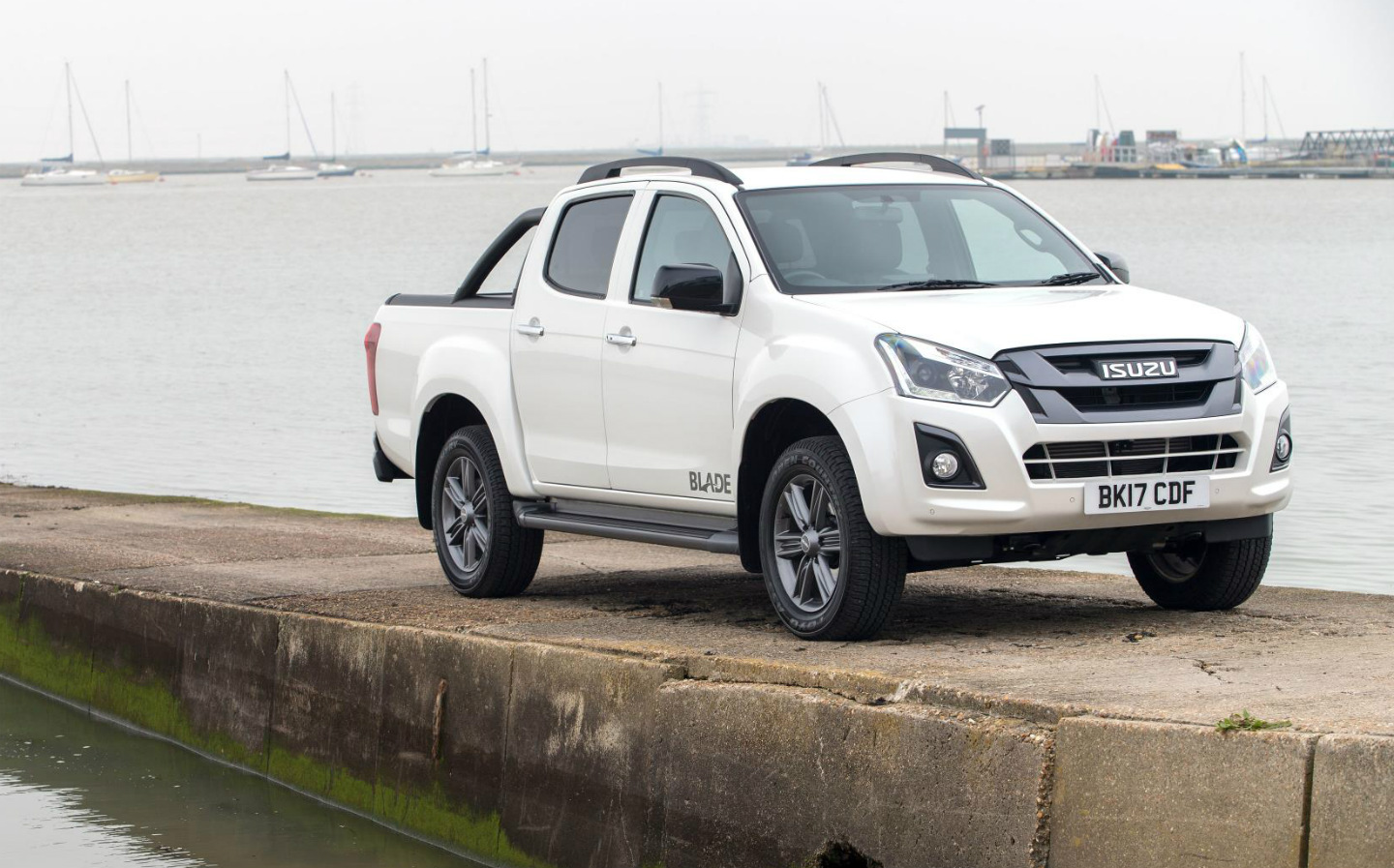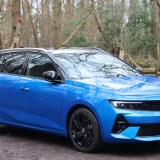Pick-up truck users face massive tax hike as HMRC changes benefit-in-kind rules
Buy one now to take advantage of the grace period
Anyone who plans to order a new four-door, four-seat “crew-cab” pick-up truck provided by their employer is going to face a nasty shock after July 1 this year, as HMRC (His Majesty’s Revenue and Customs) is going to massively hike the cost of benefit-in-kind (BIK) tax for such vehicles.
Currently, vans and pick-ups are part of a pretty simple taxation regime when it comes to BIK tax. As long as they have a payload of more than one tonne, they’re classified as commercial vehicles, and up until now HMRC has been tacitly allowing a certain level of social, domestic and pleasure use of such vehicles, essentially accepting that it’s all-but impossible to police such use.
The cost has been minimal to those driving the vehicles. Right now, and if you buy or are given the use of such a vehicle up to July 1 this year, you pay a flat rate for both the vehicle and any fuel costs which are covered by your employer, which adds up to £3,960 for the truck and £757 for the fuel.
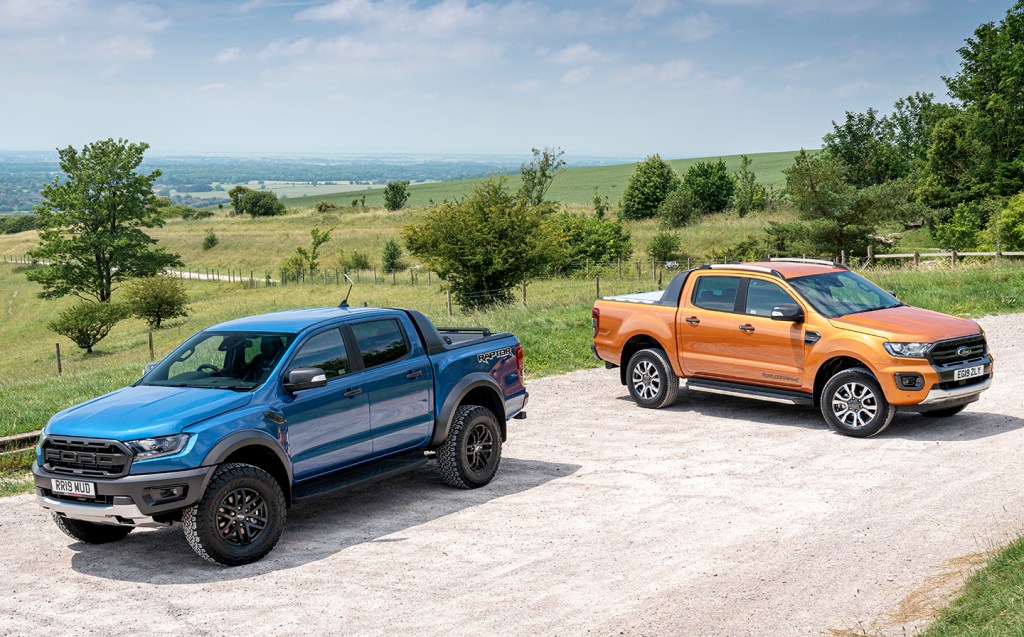
This is going to dramatically change when the new rules come into effect. HMRC is going to throw out the one-tonne payload rule and has decreed that any vehicle with rear seats and rear doors which could be used as a private car will be classified as a private car and assessed accordingly for BIK.
From July, anyone buying or being provided with a newly-registered crew-cab pick-up will need to pay the standard rate for cars, which is adjusted according to a vehicle’s CO2 emissions.
The trapdoor there is that most pick-ups use older-technology diesel engines, on top of which they are heavy and aerodynamically inefficient. Hence nearly all pick-ups will have emissions figures that place them in the top-tier 37 per cent BIK tax band.
Enormous tax implications
The cost implications will be enormous. Speaking to Fleet News magazine, John Messore, joint owner of Innovation Tax and Mileage Consulting Group, said: “The most common double-cab pick-up in the UK is the Ford Ranger with a list price of circa £60,000 and CO2 emissions of over 200g/km putting it squarely in the 37 per cent tax bracket meaning a BIK of circa £22,200 a year leading to employee tax of £8,880 a year for a 40 per cent taxpayer or £13,320 a year at 60 per cent tax or £1,110 a month.”
He continued: “If free private fuel is also provided (which it probably should be historically as it is currently a no brainer at such low levels of tax) that is a combined benefit of £32,486. This will have an additional Class1A NIC cost of £4,483 to the employer, whilst the total tax for a higher rate taxpayer is £12,994 per annum.”
A grace period
Any company buying a double-cab or crew-cab pick-up between now and July 1 will be allowed to operate it and be charged the old BIK tax rate until the truck is sold or traded in up to the end of the tax year, April 5, 2028.
If a pick-up has been ordered before July 1, but not made available to an employee until after that date for any reason, then the grace period still applies.
Messore did point out that there is a potential work-around, at least partially, by engaging in an employee car ownership scheme (Ecos), where the company buys the truck and then transfers ownership to the employee. However, even then there will be significant extra tax costs, both in terms of BIK and VAT, and meticulous mileage records will need to be kept for tax purposes.
The decision by HMRC to change the rules sprang from a series of court cases brought against it by Coca-Cola, which claimed that four-seat crew-cab versions of the Vauxhall Vivaro and Volkswagen Transporter vans that it was providing for employees ought to be taxed as commercial vehicles for BIK purposes.
The case went to the Court of Appeal, which decided in favour of HMRC’s decision to tax the vehicles as private cars.
The decision by both the court and HMRC has been criticised by company car taxation experts, who have said that the legislation as it stands is outdated and not fit for purpose. Potentially, more legal challenges could yet be brought, but probably not enough nor quickly enough to affect the July 1 deadline.
Or just go electric
There is one potential solution to all this, of course, and that’s to go electric. Electric cars attract a mere two per cent BIK rate, which would solve everyone’s problems here. However, there is currently only one electric pick-up truck on the market — the Maxus T90EV — and there are few, if any, signs of any others arriving soon.
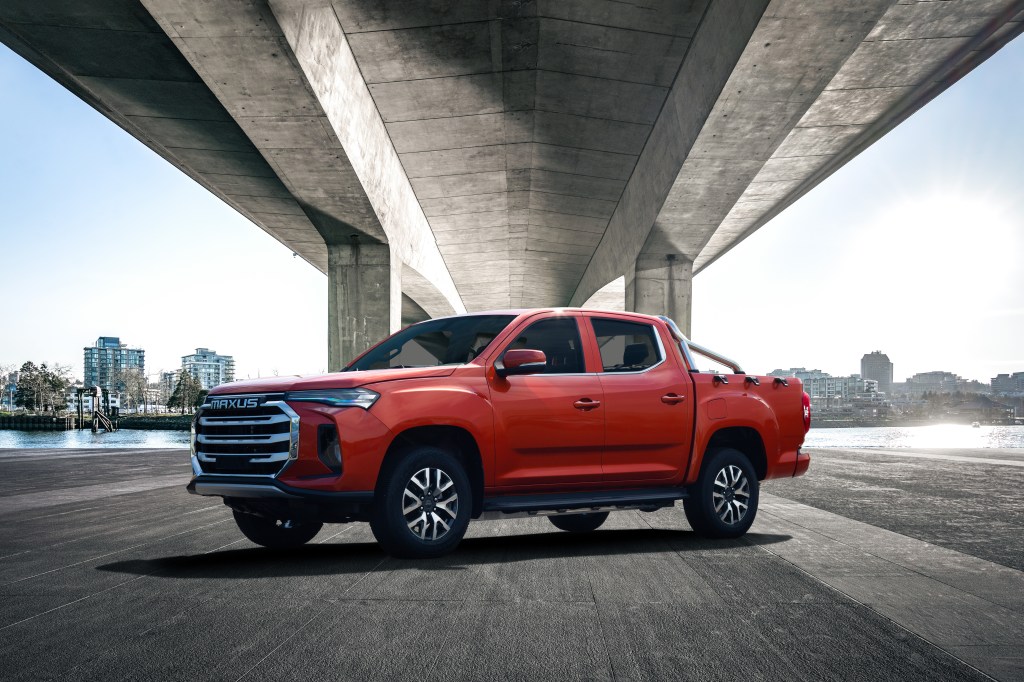
Ford has said that it will introduce a plug-in hybrid version of the Ranger pick-up, but we do not yet know when that will arrive nor what its CO2 emissions figure will be.
If the Ranger is getting a PHEV version, that means its twin — the Volkswagen Amarok — could do, too, but again that does not yet have a confirmed arrival date. VW has also said that it is possible to make a fully-electric Amarok, but such a model seems even further away. Driving has contacted Volkswa6 Commercial Vehicles for comment.
Toyota is experimenting with hydrogen power for its Hilux pick-up, but that is currently only at a very early prototype stage, and while mild-hybrid power will be introduced to the Hilux later this year, that won’t lower its CO2 emissions significantly.
Tesla’s pure-electric Cybertruck is available to buy in America, but while listed on the UK website it is only at the “register for updates” stage, and no price nor arrival date has yet been confirmed.
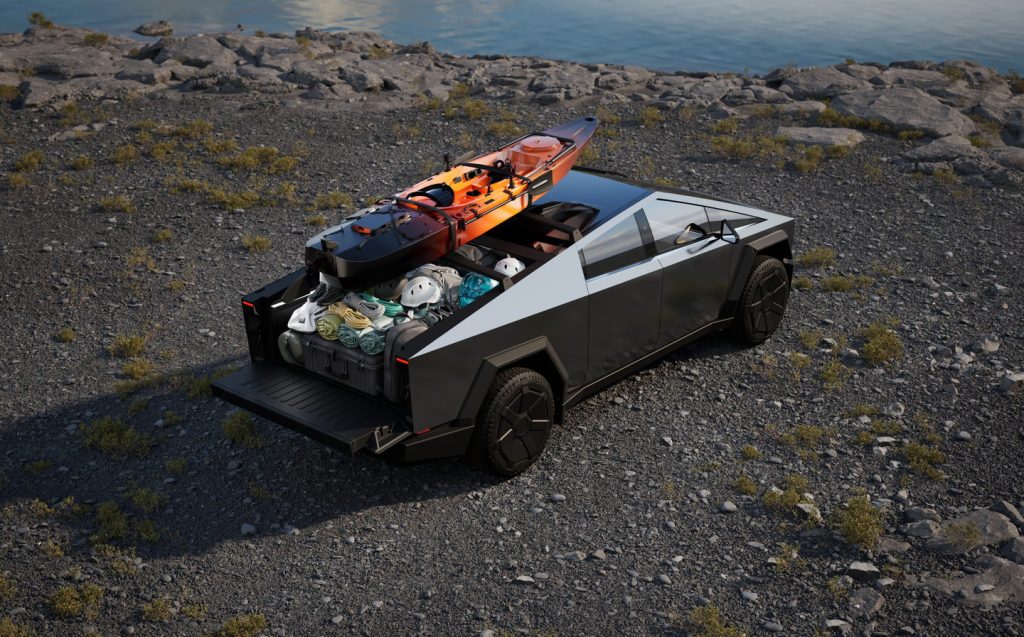
Ford sells both a hybrid Maverick pick-up and an electric Lightning version of its hugely popular F-150 pickup in the US market, but there are currently no plans to bring either to the UK in right-hand drive.
The same goes for the likes of the Chevrolet Silverado, GMC Sierra, Ram 1500 EV and the Rivian R1T.
In fact, the most likely candidate for a UK electric pick-up launch at the moment is Fisker, which has announced and shown its pure-electric Alaska model, which costs a mere $45,400 in the US market but which has still not officially confirmed any UK plans for the model.
Related articles
- After reading about the new taxation rules for company-provided pickup trucks, you might be interested in Kia’s plans to enter the commercial vehicle market with a range of new options
- Or have a read of our Ford E-Transit review
- The Ranger Raptor is one of our favourite pickups
Latest articles
- Aston Martin Valkyrie AMR-LMH hypercar hits track ahead of 2025 Le Mans challenge
- Porsche has begun testing the electric Cayenne
- Cupra Leon 272 eHybrid 2024 review: Bigger battery, better tech … but is it a Cupra?
- Porsche 911 GTS 2024 review: Hybrid heresy or more Stuttgart genius?
- Extended test: 2023 Vauxhall Astra Sports Tourer GS PHEV
- Ford Capri revival has faced a lot of flak… but are buyers put off? Here’s what visitors to the Festival of Speed had to say
- F1 2024 calendar and race reports: What time the next grand prix starts and what happened in the previous rounds
- ‘No timeframe’ for how long Volvo’s returning estate cars will be on sale in UK
- Kia Picanto 2024 review: Updates add spice to cute Korean city car


